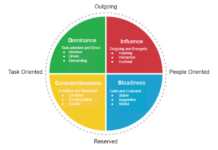
Hey you! Are you NOT where you want to be in your office? Do you feel like you’re constantly overlooked?
You just might have to play the game a little bit… but that’s not a bad thing. Playing the game just means recognizing that your office and work in general — it’s not a meritocracy. You don’t necessarily get what you put in, and there certainly isn’t a direct correlation to your intelligence and your position. Just read any scarily-accurate Dilbert comic for confirmation of that!
Here are 5 easy ways to get ahead at work and WIN office politics – to whatever your goal at the office is. It’s easier than you think, you don’t have to fake anything.
Tip 1: Know what people want.
Research studies have shown that what people are seeking in the office is not what you might think. People are in the office to do a job and ultimately get paid for it, but in a 2013 study, 83% of respondents said that the simple feeling of recognition and validation was more important than any financial payoff.
Surprising perhaps, but this makes workplace competition much easier to deal with. Simply validate, acknowledge, recognize, and assign credit more often to others – especially in public and in front of other people. Don’t miss a thing – the things that we take for granted are often what people are seeking validation on.
Compliment, praise, acknowledge, and give credit as much as possible. Don’t reserve it for special occasions.
Tip 2: Effective listening by derailing your trains.
Especially in the workplace, we go into conversations with things we need to convey and get off of our chests with little regard for the other party. As long as we say what we need, we feel that the conversation is a success.
But that’s an approach that is completely devoid of listening, and especially listening with intent and purpose as you might need in the workplace.
Effective listening is about staying in the present moment and conversation – we often speak over others or interrupt them because we feel like we’ll lose something forever if we don’t blurt it out at that moment. It’s an instinct and habit for many of us that we need to BREAK.
But I assure you, it wasn’t as brilliant as you thought it was. You need to derail your train of thought – let that interruption happen – and put yourself into the present moment and conversation and simply react to the other person instead of waiting for your turn to speak. Be okay with completely losing what you were going to say, because if not, you’re probably doing it to other people constantly.
Tip 3: Make requests easy to fulfill.
I like to believe that people are good-natured inherently, and this means they will help others if they have the availability and ability to do so.
When you make a request of others, or ask for help, people are usually willing… as long as you check off two mental boxes.
First, you need to make your request or ask as easy as possible for them to say yes to. This means inconveniencing yourself and interrupting your own schedule to say “How about only 15 minutes, at your office, and do you take your coffee with cream and sugar?” That’s pretty easy to say yes to and it shows a large degree of self-awareness.
Second, there must be a plausible reason why you are making the request in the first place. If you’ve made an effort, have done your own research, and have specific questions, then people are all too happy to help guide and direct. What’s less attractive is when people clearly are just looking for a shortcut and haven’t put in any work themselves, but are expecting to use your time as a substitute.
Tip 4: Visual Notes.
I believe that ideally, everyone would carry a notebook with them everywhere in the office. This has two main benefits, both of which are huge.
First, you clearly create a paper trail of communication. This allows you to keep track of a project or assignment’s progress, milestones, comments, and questions in an organized manner that will improve feedback and continuity.
Second, there’s a large degree of perception when you visually take notes on a piece of paper in front of someone. It says to them that what you’ve said has impacted them so much that they feel the need to do their own research, or there was so much value they don’t want to forget your words. It provides a feeling of validation that is unmatched in the office.
Tip 5: Play Devil’s Advocate.
Here’s what suck-ups do: they agree immediately.
They parrot every idea the supervisor has, and proclaim how intelligent they are. They use agreement as their currency and just want to validate the supervisor.
If you’re an experienced supervisor, it’s almost too transparent. It becomes very obvious very quickly, and you will start to see that people refuse to think for themselves or offer meaningful feedback. These people are useless because you can’t get anything meaningful from them.
But that’s not you.
Even if you agree with a supervisor’s ideas and thoughts, play devil’s advocate first. Do not agree right off the bat before exploring alternate approaches or other possibilities.
In essence, you are making them justify their choices to you, and you are actually offering valuable feedback and allowing them to better articulate their thoughts.
Challenge them. For example, “Well, what makes you think that? What are your assumptions that lead to that conclusion? Is that really the most efficient way possible? What about method Y?”
Listen to them and agree… eventually. Or disagree in the face of additional information and discussion!
In their minds, your opinion is due to the fact that they have persuaded you or that you have listened to logic. This makes you look more human, vulnerable, and acceptable to your boss. It becomes less obvious that you’re actually trying to get their favorable opinion.
If you’re looking around and constantly wondering why you’re not at a higher position, then look no further – it’s because of your workplace conversations.
Check out Conversation Tactics: Winning Workplace Strategies, to get actionable advice, and thorough examples and sample dialogue to take you to that next level.





